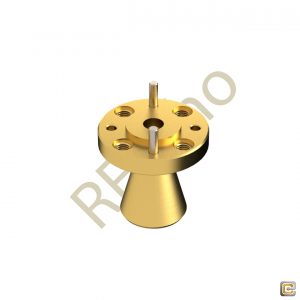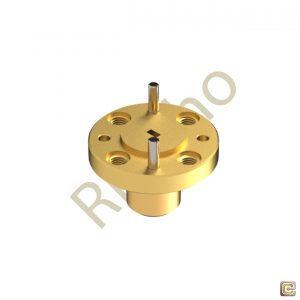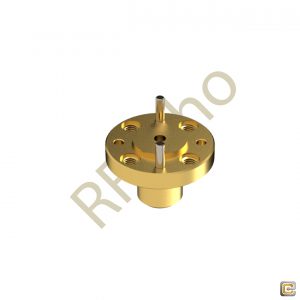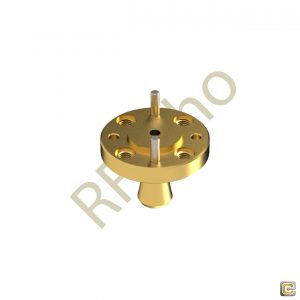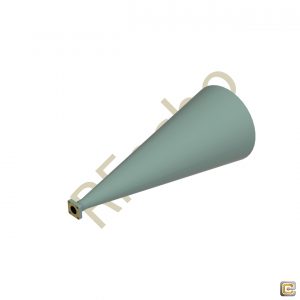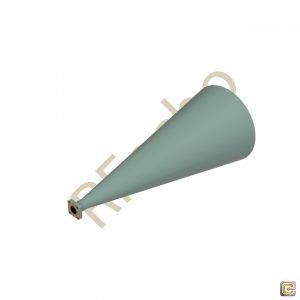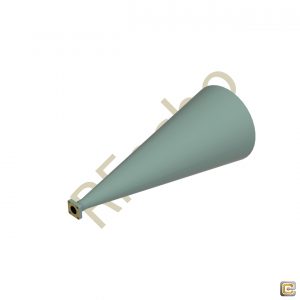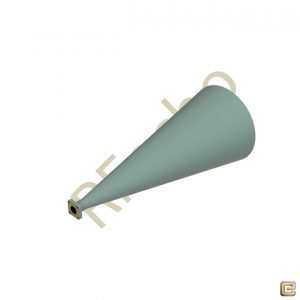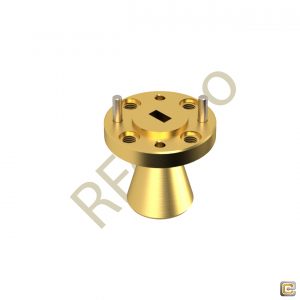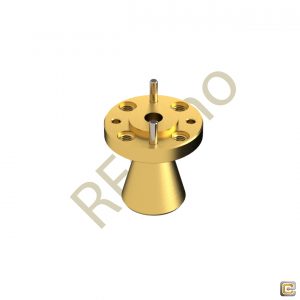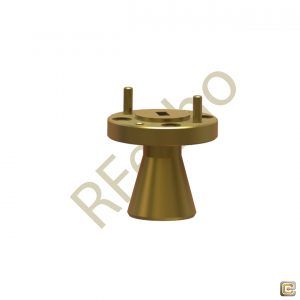Conical Horn Antenna
Conical Horn Antenna is presented as both standard and custom models with either a circular or rectangular waveguide interface. Circular waveguide interface can support many polarization kinds counting horizontal, vertical, left-handed circular, and right-handed circular polarization for wider applications, while Conical Horn Antennas with a rectangular waveguide interface can only support linear polarization. Conical Horn Antennas can be considered to be a waveguide that has been broadened out in the form of a horn. As a product, it finds many applications in areas where waveguides are used.
Conical Horn Antenna forms a flat change between the waveguide and free space whilst also pointing the radio waves in a beam. Conical Horn Antenna display better reflectivity levels in the quiet zone of tapered chambers, with low VSWR across the range. Conical Horn Antennas covers the frequency range from 50GHz to 140GHz, standard gain from 14dbi to 25dbi and VSWR is 1.15:1.
An efficient conical horn is shown in the Figure below.
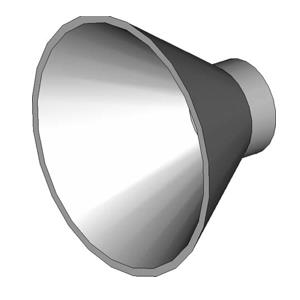 |
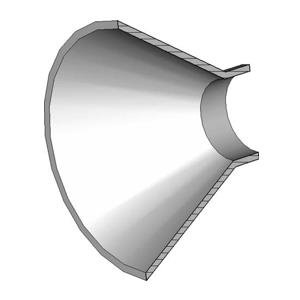 |
|
(a) Full View |
(b) Longitudinal Section |
Waveguide of conical horns vs pyramidal horns
While the pyramidal, E-, and H-plane sectoral horns are usually fed by a rectangular waveguide, the feed of a conical horn is often a circular waveguide or rectangular waveguide.
Directivity of a conical horn antenna
Directivity of a conical horn as a function of aperture diameter and for different axial horn lengths.
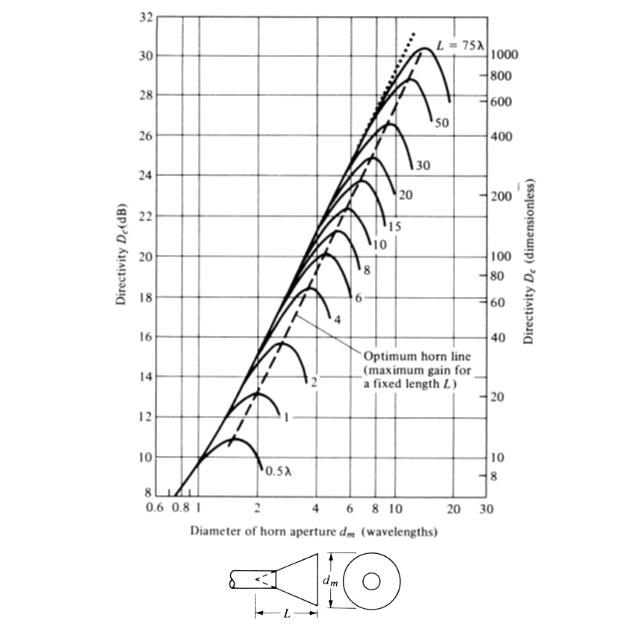 |
Referring to figure up, it is apparent that the behavior of a conical horn is similar to that of a pyramidal or a sectoral horn. As the flare angle increases, the directivity for a given length horn increases until it reaches a maximum beyond which it begins to decrease. The decrease is a result of the dominance of the quadratic phase error at the aperture. In the same Figure, an optimum directivity line is indicated.
Radiation Pattern
A comparison of both radiation patterns can be found in Figure, where it can be seen that both horns have good radiation pattern characteristics.

